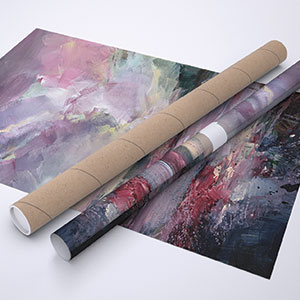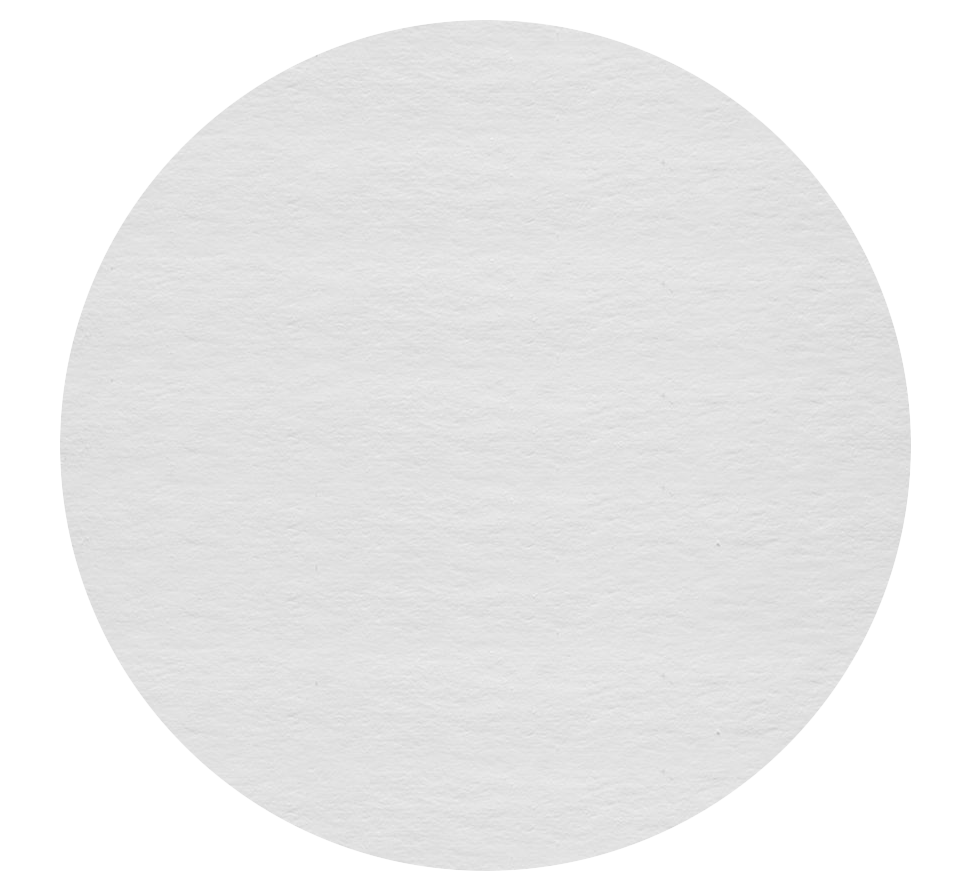Venduto
Vedere più a proposito di Edwin LoftusL'artista offre opere su commissione
Hai perso l'occasione di acquistare quest'opera? Buone notizie: l'artista può anche creare un'opera personalizzata, solo per te!
Venditore Edwin Loftus
Stampe "Fine-Arts" su carta
È un processo di stampa su carta patinata utilizzando inchiostri a pigmenti di altissima qualità e stampati in altissima definizione. Il suo livello di conservazione è eccezionale (oltre 100 anni), la sua qualità, profondità e ricchezza di sfumature supera la classica stampa fotografica su carta Argentic.

Finitura lucida
Oltre al suo eccezionale spessore, la carta in fibra è composta da una base alfa-cellulosa senza acido ed è ricoperta da solfato di bario e uno strato microporoso che migliora l'assorbimento dei pigmenti durante la stampa. Sfoggiando un colore bianco puro, non ingiallendo alla luce, questa carta è appositamente progettata per resistere e invecchiare. È utilizzato dai principali musei di tutto il mondo in quanto offre un'eccellente risoluzione, rendendo i colori profondi e densi.
Stampa artistica "Fine Art" - Finitura lucida su carta a base di fibra 325 g.

Le nostre stampe di fascia alta e riproduzioni
ArtMajeur utilizza solo carte naturali a pH neutro, resistenti e di alta qualità, selezionate da rinomate fabbriche di carta!
La nostra stampante principale presta costante attenzione, sia in termini di controllo del colore che di rispetto della catena grafica. Il nostro alto livello di requisiti di qualità è una delle principali risorse delle stampe artistiche incorniciate ArtMajeur.
Per gli artisti! Aiuta gli artisti a vivere del loro lavoro. I diritti sono loro riversati ogni volta che si acquistano le stampe delle loro opere.
A proposito delle nostre stampeAcquista una licenza per utilizzare questa immagine per il tuo sito web, la tua comunicazione o per vendere prodotti derivati.
Usage: Licenza internet
| 967 px | ||

|
1500 px |
| Dimensioni del file (px) | 967x1500 |
| Utilizzazione in tutto il mondo | Sì |
| Utilizzazione su un multi-supporto | Sì |
| Utilizzazione su un qualsiasi tipo di supporto | Sì |
| Diritto di rivendita | No |
| Numero massimo di stampe | 0 (Zero) |
| Prodotti destinati alla vendita | No |
Scarica subito dopo l'acquisto
Quest'immagine è disponibile per lo scaricamento con una licenza.: puoi scaricarli in qualsiasi momento.
Restrizioni
Tutte le immagini di ArtMajeur sono opere d'arte originali create da artisti, tutti i diritti sono strettamente riservati. L'acquisizione di una licenza dà il diritto di utilizzare o sfruttare l'immagine sotto i termini della licenza. È possibile effettuare piccole modifiche come il riquadro o la rifocalizzazione dell'immagine in modo che si adatti perfettamente ad un progetto. E' tuttavia vietato apportare qualsiasi modifica che possa danneggiare l'opera originale nella sua integrità (modifica delle forme, distorsioni, taglio, cambio di colori, aggiunta di elementi, ecc.), a meno che non venga prima ottenuta un'autorizzazione scritta dall'artista.
Licenze personalizzate
Se il tuo utilizzo non è coperto dalle nostre licenze standard, contattaci per una licenza personalizzata.
Banca d'immagine d'arte-
Opera d'arte originale (One Of A Kind)
Disegno,
Pastello
su Carta
- Dimensioni Altezza 8in, Larghezza 6in
- Incorniciatura Questa opera d'arte non è incorniciata
- Categorie Disegni sotto i 1.000 USD Illustrazione Vita di ogni giorno
In part this is because the acute, reactive form of depression, is part of our natural survival systems, a slowing down in response to major changes that induces us to reflect on new elements in our lives and make adjustments in our understanding of how to proceed in the future.
Beginning in the womb, we begin to formulate theories about what is happening to and around us, a hypothesis that provides us with a basis for gauging our responses and evaluating our chances of manipulating events and their effects in the future.
This is a mechanical process consisting of the exchanges of chemical and electrical impulses in and between our neuron receptor sites and possibly involving the glial cells between them. Our neurons grow new receptors and arrange the chains of molecules that appear to act as conduits directing the flow of free electrons in the neurons. Our "perceptions" are the ever-developing dominant themes in our physical responses to stimuli external to our processing mechanism, (the brain), and we are the ongoing process of stimuli, to signaling, to a processing between neurons and regions of the brain, to signaling of response and feedback in the form of new external stimuli. What we perceive as reality, is the process of fitting signals in the form of single molecules and single electrons into the patterns we have formulated and think best fits them as reinforced by ongoing perception and response.
Subjectively, reality to each of us is what each of us perceives it to be. But that does not say, as many post-Positivist theories would hold, that "perception is reality." Perceptions suggest that there is an objective reality, unaffected by perception, (the falling tree making a sound when no one can hear it). Schrodinger's cat is either alive or dead, we just don't know which. Not, because we don't know which, it exists in a state of potentiality of being both alive and dead. Our inability to know does not affect its nature of being, Kant's theoretical noumena versus phenomena.
None of that helps, if you are depressed. If so, and it doesn't fade fast enough for you, try home remedies, make changes in your life, and then seek medical help for a physical malfunction.
Temi correlati
Edwin Loftus è un pittore e disegnatore americano nato nel 1951. Il suo interesse per l'arte è iniziato all'età di 4 anni quando ha deciso di disegnare qualcosa di reale piuttosto che lavorare dalla sua immaginazione.
Da bambino eccelleva nel disegno e da adolescente inizia a cimentarsi con la pittura ad olio. Al college, ha seguito corsi di arte e storia dell'arte e si è reso conto che la vera arte non aveva nulla a che fare con la qualità del disegno o della pittura, ma che doveva avere l'ambizione di superare i confini ed espandere l'esperienza visiva.
Ha anche studiato filosofia, psicologia e storia e si è subito reso conto che era solo un'altra istituzione artistica che cercava di difendere la sua industria elitaria e il suo sistema di ricompensa. Le loro abilità erano quasi inesistenti, non sapevano nulla di psicologia, percezione o risposta agli stimoli ed erano estensioni del sistema di credenze che ha reso il comunismo, il fascismo e altre forme di totalitarismo tali forze distruttive nel mondo. Credono letteralmente che l'arte non dovrebbe essere disponibile per gli esseri umani ordinari, ma solo per un'élite "sofisticata" abbastanza da capirla.
Edwin Loftus si rese conto che gli imperatori dell'arte non avevano vestiti, ma erano pur sempre gli imperatori. Dotato di arte, ha lavorato duramente per acquisire questa abilità. Così ha trovato altri modi per guadagnarsi da vivere e di tanto in tanto ha venduto alcune opere d'arte. Per sessant'anni molte persone hanno apprezzato le sue opere e alcuni le hanno collezionate.
Oggi Edwin Loftus è in pensione. Anche se vendesse tutti i suoi dipinti per il prezzo che chiedeva, "artista" sarebbe il lavoro meno pagato che abbia mai avuto... ma è così. Non gli importerà dopo la sua morte. Spera solo che ad alcune persone piaccia quello che fa abbastanza da goderselo in futuro.
-
Nazionalità:
STATI UNITI

- Data di nascita : 1951
- Domini artistici: Opere di artisti dal valore d’artista certificato,
- Gruppi: Artisti certificati Artisti Americani Contemporanei









